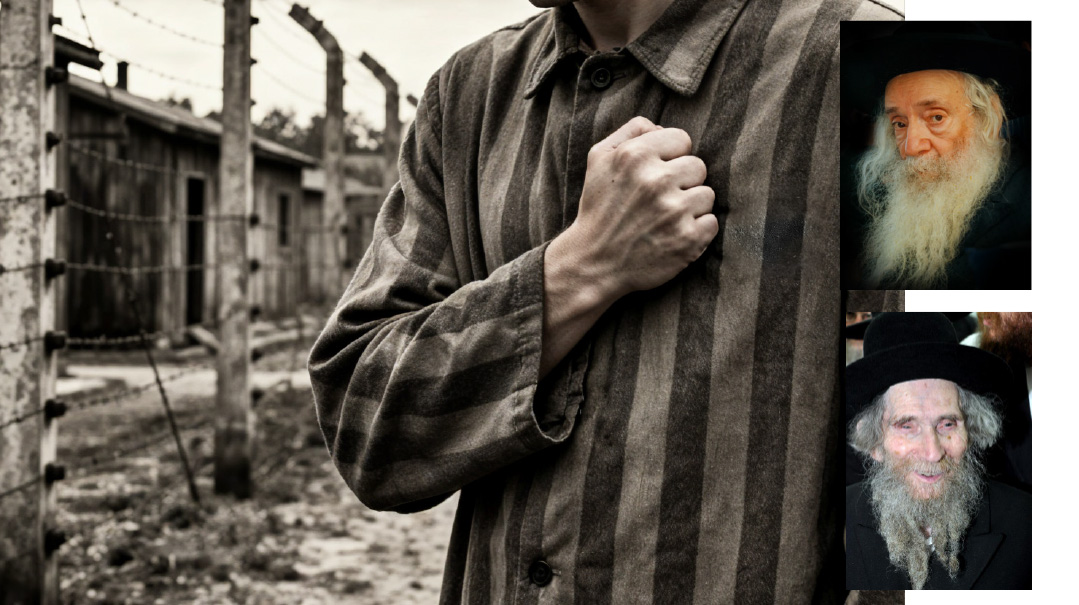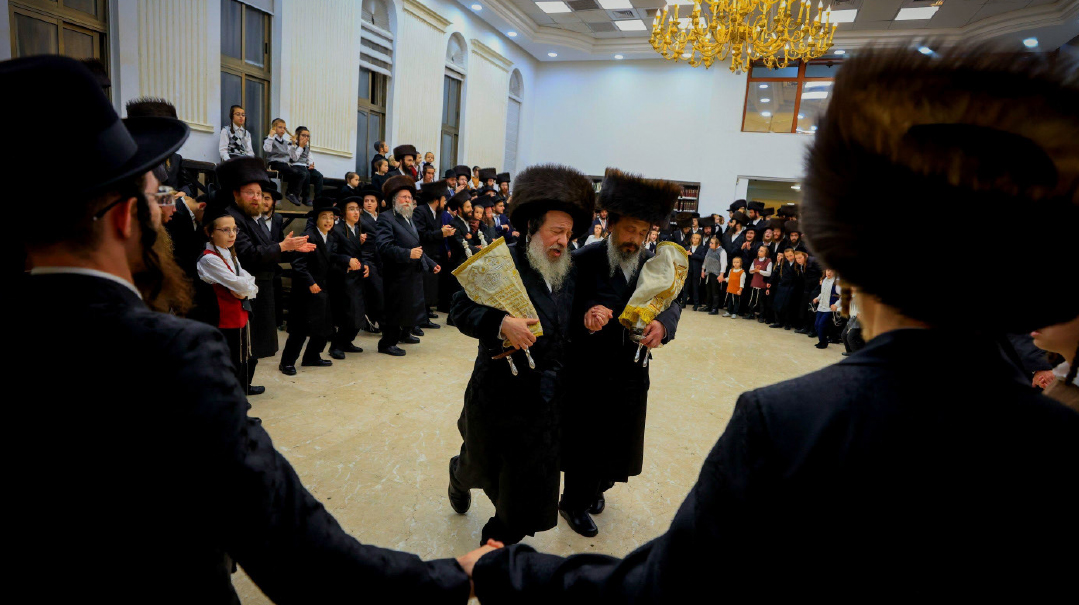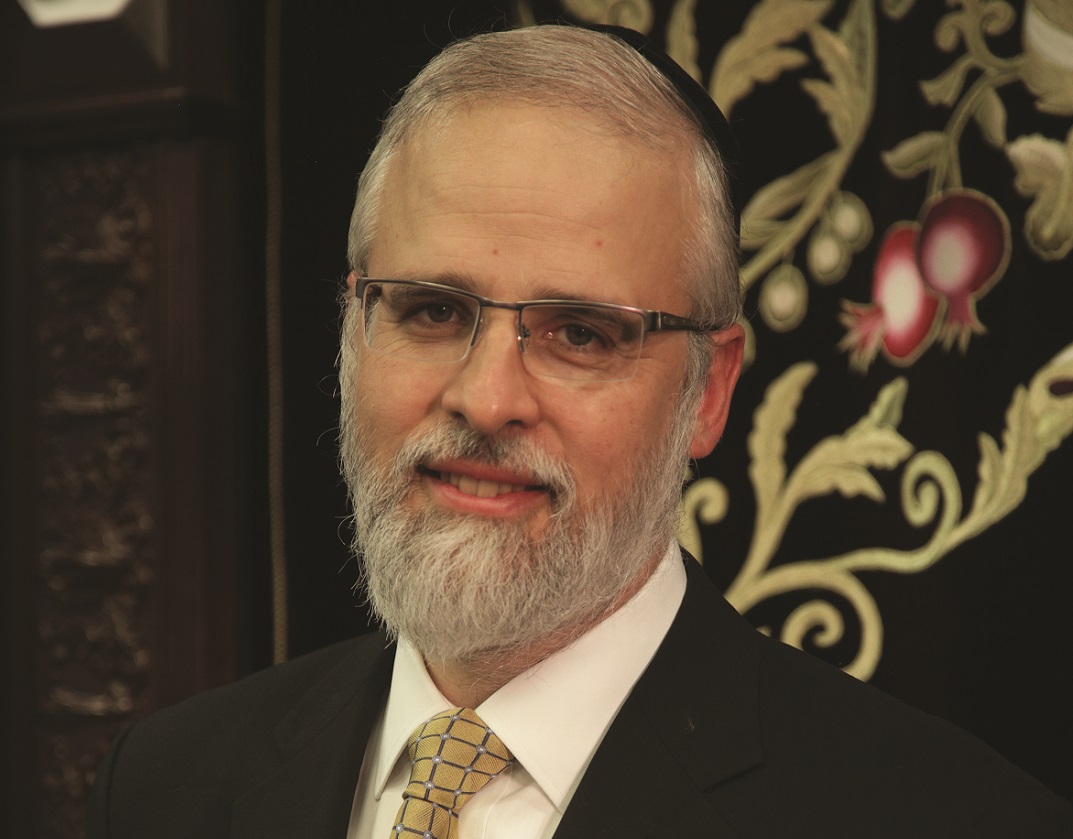The World Is Ready

The story behind Yat Kislev, the bitter dispute that turns brother against brother, is a painfully familiar one
R
av Mordechai Gifter ztz”l once invited a younger student into his office. The bochur was worried about what he may have done wrong and figured that the Rosh Yeshivah might have learned of his interest in Chabad chassidus and disapproved. Rav Gifter invited him to sit down, placed two shot glasses on his desk, and poured them both l’chayims.
“Today is the 19th of Kislev, a significant day for chassidim,” said the Rosh Yeshivah. “I mark this day in appreciation of my first rebbi, Rav Eliyahu Axelrod, a Chabad chassid, and my next rebbi, Rav Forshlager, also a chassid. Let’s make a l’chayim together.”
Unlike Rav Gifter, I have never celebrated Yat Kislev, but this year, I accepted an invitation to speak at a celebration of what chassidim refer to as the “Rosh Hashanah of chassidus,” commemorating the day in 1798 that the Alter Rebbe, Rav Shneur Zalman of Liadi, was released from a Russian prison. Being unfamiliar with the nuances of this holiday, I pulled out two seforim, one that chronicled the events surrounding the Alter Rebbe’s imprisonment and release through original letters and documents, and the other a compendium of the Yat Kislev addresses of the last Rebbe ztz”l. Astoundingly, the two sources hardly overlapped.
The historic chronicle told the story of a tragic anniversary, one that emerged from the enormously bitter dispute between chassidim and misnagdim that led to the accusations made to the czarist government against the Alter Rebbe and that ultimately resulted in his arrest and imprisonment. The dispute was rooted in sincerely held principles of halachah, hashkafah, and appropriate behavior, and it deeply divided the Jewish community, creating rifts even within families.
The Yat Kislev compendium told the completely different story of the celebration of a new beginning for mankind, the day a previously hidden font of Torah understanding, the Torah of chassidus, was released to fill the world. In this account, there were no bitter rivalries between Jews, no human misnagdim. The antagonism that led to the Rebbe’s imprisonment came instead from forces in the heavens that questioned the world’s readiness for this precious aspect of Torah learning. The imprisonment was a divinely sent “hold” on the Alter Rebbe’s trailblazing mission of sharing his uniquely intellectual and logical presentation of the hidden Torah, while his acquittal by the czarist court was indicative of the heavenly decision that the world was indeed ready for the Alter Rebbe’s Torah wisdom and truly needed to drink from its wellsprings.
The events and their different interpretations are reminiscent of the first time a Jew was imprisoned following a bitter and principled dispute with other Jews, the story of Yosef and his brothers. There too one could see the event on its face in all its tragic bitterness, focusing on what the brothers did to Yosef; or one could see it as Yosef did, that his imprisonment and sale into slavery was not their doing but rather the miraculous and redemptive extension of Hashem’s hand positioning Yosef to provide for the Jewish People. Yosef was utterly free of resentment toward his brothers due to his choice to live with emunah sheleimah, a true and full faith in Hashem that shaped his view of everything he experienced.
There is an additional component to the Rebbe’s approach, one that goes beyond his emunah and that is sourced in the historical chronicle of letters and that is also reminiscent of Yosef: the Alter Rebbe’s fierce commitment to ahavas Yisrael, which he taught and modeled and which he knew would be jeopardized by allowing the continuation of this dispute.
Upon his release, the Alter Rebbe wrote a letter to his followers in which he encouraged them to fully love all Jews, including those from outside their circle of fellow chassidim. He repeated earlier warnings against anyone casting aspersions on his chief opponent, the Gaon of Vilna, with absolutely no exceptions. It was clear to him that the accusations to the government that led to his imprisonment did not emanate from the Gaon, nor would they have occurred during his lifetime (the Gaon had passed away a year earlier.)
This more I seek and ask of you, to accustom your hearts to love your fellow Jews, including those beyond our group, and to give them the benefit of the doubt, as in truth, all Jews are literally brothers and regarding all of them it says, “You are children of Hashem your G-d.” Whatever their behavior, they are called His sons.
Undoubtedly when they bear resentment toward each other in their hearts, it is a source of disappointment and sadness to their Father in Heaven. Those who remove resentment from their hearts will find that others respond in kind, and G-d will produce in the hearts of all Jews peace, brotherhood, and friendship so that every person can find their place in peace.
The story behind Yat Kislev, the bitter dispute that turns brother against brother, is a painfully familiar one and continues to repeat itself until this day. What is far less familiar and recurrent is the Alter Rebbe’s insistent refusal to live within the confines of the dispute or to allow the dispute to live within him.
We would do well to tap into this remarkable legacy of Chabad, their faith in Hashem’s guiding hand, their unconditional commitment to leave no room for resentment of others in their hearts, and their love for every one of our fellow Jews.
Rabbi Moshe Hauer serves as executive vice president of the Orthodox Union (OU).
(Originally featured in Mishpacha, Issue 1042)
Oops! We could not locate your form.






